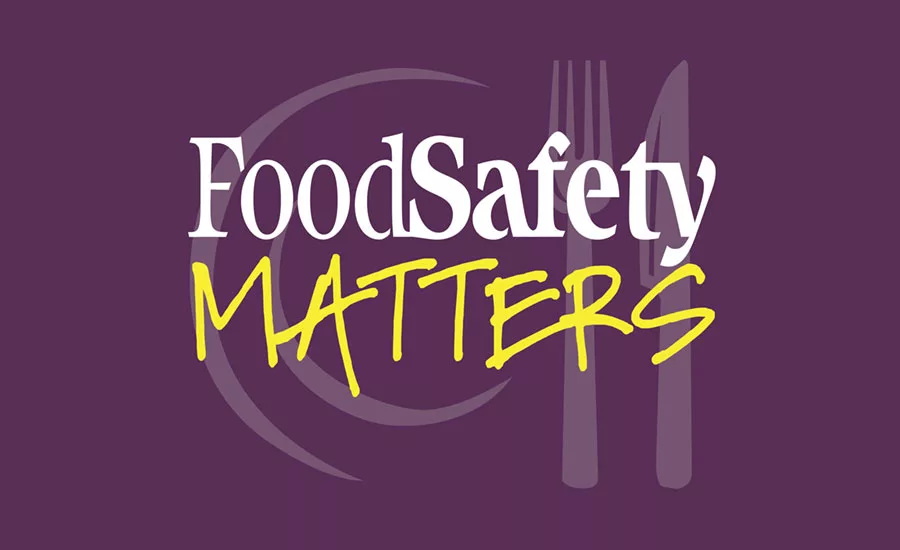Ep. 119: Live From the 2022 Food Safety Summit

To get a taste of the discussions that were happening at the 2022 Food Safety Summit, we spoke face-to-face with Hal King, Managing Partner at Active Food Safety and John Zimmerman, Vice President of Quality Assurance and Food Safety at First Watch Restaurants; Mark Moorman, Director of the Office of Food Safety at the U.S. Food and Drug Administration’s Center for Food Safety and Applied Nutrition (FDA’s CFSAN); Mikael Bengtsson, Industry Principle for Food and Beverage at Infor; Steve Mandernach, Executive Director of the Association of Food and Drug Officials (AFDO); John Spink, Director of the Food Fraud Prevention Think Tank and Lead Instructor at the Food Fraud Prevention Academy; and Mitzi Baum, CEO of Stop Foodborne Illness.
Subscribe on Apple Podcasts | Stitcher | Google Play | Android
In this episode of Food Safety Matters, we speak with the following individuals about:
Hal King and John Zimmerman [25:37]:
- The top risk factors that cause most foodborne illness outbreaks, and how a comprehensive food safety management system (FSMS) can help address those risk factors
- The importance of being proactive instead of reactive when it comes to food safety, and how a FSMS helps businesses take action
- The key steps to developing and executing a quality FSMS in a retail foodservice business, as well as how to sustain and update a FSMS despite turnover
- The importance of training and good standard operating procedures (SOPs) in a FSMS, as well as monitoring for continuous improvement.
Mark Moorman [32:09]:
- How CFSAN helps execute FDA’s New Era of Smarter Food Safety by focusing on two of the New Era’s four core pillars: foodborne illness outbreak response and the retail sector
- The importance of leaders “taking a step back” to talk to and learn from others in the food safety community
- Why FDA’s and the U.S. Centers for Disease Control and Prevention’s (CDC’s) improved ability to detect and trace foodborne illness outbreaks will lead to an increase of recorded data on such outbreaks
- The need for food production companies to cooperate and communicate with regulators during food safety incidents
- The urgency of using technology to improve traceability and “connect the dots” to rapidly remove unsafe foods from the market
- FDA's emphasis on engaging with industry and building partnerships.
Mikael Bengtsson [43:08]:
- What supply chain transparency is, and how it benefits food safety by making the supply chain more efficient
- The process by which food moves from farm to table, including the rise and effects of direct-to-consumer food retail
- How food and beverage manufacturers can increase transparency by using innovative technological tools
- The importance of being able to react precisely and quickly to food safety incidents
- How the food sector can modernize its methods for data collection and analysis.
Steve Mandernach [50:54]:
- The action steps needed to improve and modernize food product recalls at all levels
- The public health and business costs of fighting regulators during a food safety incident investigation
- Key ways to modernize the inspection process, such as with remote audits, and the possible benefits of doing so
- How in-person collaboration expedites progress within the food safety community.
John Spink [59:55]:
- The interrelationships of cybersecurity, supply chain management, and food safety
- How to prepare for and navigate supply chain disruptions by revisiting the fundamentals of supply chain management from the role of the supply chain manager
- How massive changes, as precipitated by the COVID-19 pandemic, lead to supply chain vulnerabilities, and how proactive thinking can prevent food fraud during vulnerable times
- The level of food crime over time and changes in the way fraudulent activities are carried out.
Mitzi Baum [1:05:42]:
- Why modernizing recalls is essential in protecting consumers, and the need for it to be a collaborative effort
- Stop Foodborne Illness’ multi-stakeholder working group, The Alliance to Stop Foodborne Illness, and the work being done to improve the U.S. recall system
- Stop Foodborne Illness’ approach to managing regulatory partnerships by stressing that “we are all in this together”
- The power of sharing effective messaging with industry, consumers, and regulators
- Stop Foodborne Illness’ and FDA’s joint webinar series on food safety culture.
News and Resources:
2022 Food Safety Summit Opens with Riveting Mock Civil Trial [8:23]
FSS 2022: Urgency, Communication Needed to Improve the Future of Recalls [13:58]
FSS 2022: Regulators Highlight Policy, Technology Advances at Town Hall [15:06]
FSS 2022: Keynote: Commitment and Collaboration in Food Safety Culture [16:16]
FSS 2022: Improving Communication between Industry and Regulators [18:21]
FSS 2022: Building a Blueprint for Tech-Enabled Traceability [19:01]
Sponsored by:
We Want to Hear from You!
Please send us your questions and suggestions to podcast@food-safety.com




